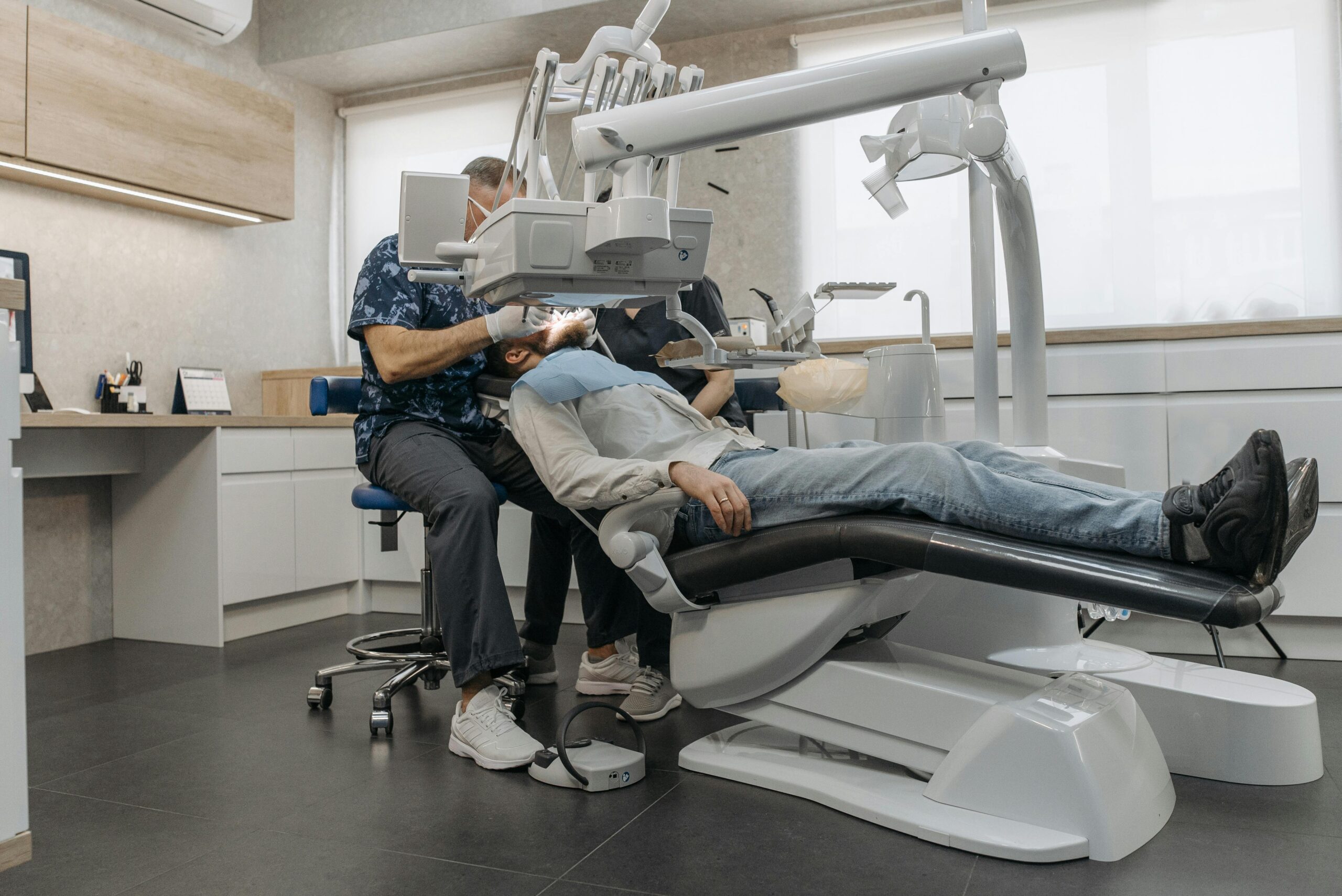How to become a Veterinary Surgeon: Complete Guide

Introduction
Embarking on the journey to become a Veterinary Surgeon is an exciting and rewarding endeavor for those passionate about animal health and medicine. This complete guide aims to provide a clear roadmap for aspiring veterinarians interested in specializing in surgery. From the educational requirements and practical experience needed to the steps to licensure and specialization options, this guide covers all aspects of the process. Whether you’re just starting to explore this career path or are already on your way, this comprehensive resource will help you navigate the path to becoming a successful Veterinary Surgeon.
Who is Veterinary Surgeon and what do Veterinary Surgeon do?
A Veterinary Surgeon is a licensed veterinarian who specializes in surgical procedures for animals. Veterinary Surgeons diagnose and treat injuries, diseases, and medical conditions through surgical interventions. Their responsibilities include performing surgeries such as spaying and neutering, orthopedic procedures, soft tissue surgeries, and emergency surgeries. They work closely with other veterinary professionals, including veterinary technicians and assistants, to ensure the health and well-being of animals under their care. Additionally, Veterinary Surgeons may provide post-operative care, prescribe medications, and advise pet owners on proper care and rehabilitation after surgery. Overall, their expertise and skills play a critical role in improving the quality of life for animals and ensuring their long-term health.
What are the educational qualifications required to become Veterinary Surgeon?
To become a Veterinary Surgeon, individuals must complete a rigorous educational pathway, which typically includes the following qualifications:
- Bachelor’s Degree: The journey begins with earning a bachelor’s degree in a related field such as biology, animal science, or pre-veterinary studies. This undergraduate program provides foundational knowledge in biology, chemistry, physics, and other relevant subjects. It usually takes four years to complete.
- Doctor of Veterinary Medicine (DVM) Degree: After obtaining a bachelor’s degree, aspiring Veterinary Surgeons must enroll in and complete a Doctor of Veterinary Medicine (DVM) program accredited by the American Veterinary Medical Association (AVMA). DVM programs typically last four years and include coursework in veterinary anatomy, physiology, pharmacology, pathology, and clinical skills. Students also gain practical experience through clinical rotations in various veterinary specialties.
- Postgraduate Training (Optional): While not always mandatory, many Veterinary Surgeons choose to pursue additional postgraduate training to specialize in surgery. This may involve completing a one-year internship in small animal or large animal medicine and surgery followed by a three to five-year surgical residency program. During the residency, veterinarians receive specialized training in surgical techniques and gain hands-on experience under the supervision of experienced Veterinary Surgeons.
- Board Certification (Optional): After completing a surgical residency program, veterinarians can pursue board certification in veterinary surgery through the American College of Veterinary Surgeons (ACVS) or another recognized specialty board. Achieving board certification demonstrates advanced expertise and competence in veterinary surgery and may lead to better career opportunities and higher earning potential.
Overall, becoming a Veterinary Surgeon requires a significant investment of time and dedication to acquiring the necessary education, training, and licensure. However, for those passionate about surgical medicine and animal care, it offers a rewarding and fulfilling career path.
Which licenses are required to become Veterinary Surgeon?
Upon graduation from a DVM program, individuals must obtain a license to practice veterinary medicine in their state or country. Licensure requirements vary but typically involve passing the North American Veterinary Licensing Examination (NAVLE) or a similar state licensing exam.
Where do Veterinary Surgeon work?
Veterinary Surgeons work in a variety of settings within the veterinary industry. The most common workplace for Veterinary Surgeons is private veterinary clinics and hospitals, where they perform surgical procedures on companion animals such as dogs, cats, and small mammals. They may also work in specialty clinics or referral hospitals that focus on specific areas of surgery such as orthopedics, oncology, or neurology. Additionally, Veterinary Surgeons can find employment in academic institutions, research laboratories, and veterinary schools, where they may teach, conduct research, and provide specialized surgical care to animals. Overall, Veterinary Surgeons play a crucial role in providing surgical interventions to improve the health and well-being of animals across a variety of settings.
How long does it take to become a Veterinary Surgeon?
Becoming a Veterinary Surgeon typically requires a minimum of eight years of education and training beyond high school. This includes completing a four-year bachelor’s degree program, followed by a four-year Doctor of Veterinary Medicine (DVM) program. After obtaining a DVM degree, aspiring Veterinary Surgeons often pursue additional postgraduate training through internships and residencies, which can last anywhere from one to five years depending on the specialization and desired level of expertise. Overall, the process to become a Veterinary Surgeon typically takes a minimum of eight years, but may extend to twelve years or longer for those seeking advanced specialization or board certification.
How much does a Veterinary Surgeon make in a year?
Veterinary Surgeons typically earn competitive salaries, with annual incomes varying based on factors such as experience, location, and specialization. On average, Veterinary Surgeons in the United States earn between $90,000 and $150,000 per year. However, experienced surgeons or those working in specialty practices may earn significantly higher salaries, potentially exceeding $200,000 annually. Additionally, benefits such as health insurance, retirement plans, and bonuses can impact total compensation. Overall, Veterinary Surgeons command respectable salaries reflective of their advanced education, specialized skills, and critical role in animal healthcare.
What hours do Veterinary Surgeon work?/ What are the work hours of Veterinary Surgeon?
Veterinary Surgeons often work long and irregular hours to accommodate the needs of their patients and clients. While some may have relatively predictable schedules during regular clinic hours, many Veterinary Surgeons are on call for emergencies and may work evenings, weekends, and holidays. Surgical procedures can also be time-consuming, requiring focused attention and stamina. Additionally, Veterinary Surgeons may need to balance their clinical responsibilities with administrative tasks, teaching duties, or research activities, leading to varied work hours. Overall, flexibility and availability are essential traits for Veterinary Surgeons to effectively meet the demands of their profession and provide timely care to their animal patients.
What qualities must a Veterinary Surgeon have?
Qualities that are important for Veterinary Surgeons include:
- Medical Knowledge: Comprehensive understanding of veterinary medicine, anatomy, physiology, and surgical techniques.
- Manual Dexterity: Skill in performing intricate surgical procedures with precision and accuracy.
- Problem-Solving Skills: Ability to diagnose and treat complex medical conditions, as well as address unexpected complications during surgery.
- Communication Skills: Effectively conveying information to pet owners and collaborating with veterinary staff.
- Empathy: Compassion for animals and their owners, especially during stressful or emotional situations.
- Stamina: Endurance to work long hours and perform physically demanding surgical procedures.
- Attention to Detail: Meticulousness in pre-operative planning, surgical techniques, and post-operative care.
- Adaptability: Flexibility to handle diverse cases and adapt to changing circumstances in a fast-paced environment.
- Leadership: Ability to lead surgical teams, delegate tasks, and make critical decisions during surgeries.
- Continuing Education: Commitment to staying updated on advancements in veterinary medicine and surgical techniques through ongoing training and professional development.
What are some related jobs Veterinary Surgeon can have?
Related jobs that Veterinary Surgeons can pursue include:
- Veterinary Specialist: Focusing on a specific area of veterinary medicine such as oncology, orthopedics, neurology, or cardiology.
- Veterinary Professor: Teaching and conducting research at veterinary schools or academic institutions.
- Veterinary Practice Owner: Managing and operating a private veterinary clinic or hospital.
- Veterinary Consultant: Providing expert advice and guidance to veterinary practices or industry organizations.
- Clinical Researcher: Conducting studies and trials to advance veterinary medicine and surgical techniques.
- Veterinary Medical Director: Overseeing the medical operations of a veterinary clinic or hospital.
- Animal Welfare Advocate: Working with organizations to promote animal health, welfare, and rights.
- Government Veterinarian: Inspecting animals and ensuring compliance with regulations related to public health and food safety.
- Wildlife Veterinarian: Providing medical care to wild animals in rehabilitation centers, zoos, or conservation organizations.
- Emergency Veterinarian: Responding to emergency cases and providing critical care to injured or sick animals.
Veterinary Surgeon Job Industry Challenges
The Veterinary Surgeon job industry is experiencing several trends and challenges. One trend is the increasing demand for specialized surgical services as pet owners seek advanced medical care for their animals. This trend is driving the growth of specialty veterinary practices and referral hospitals. However, Veterinary Surgeons face challenges such as high levels of competition, especially in urban areas with multiple veterinary practices. Additionally, maintaining work-life balance can be challenging due to long hours and on-call duties. Moreover, the cost of obtaining specialized training and equipment necessary for advanced surgical procedures poses financial challenges for Veterinary Surgeons. Overall, while the profession offers rewarding opportunities, addressing these challenges is essential for the continued success and sustainability of Veterinary Surgeons in the industry.
How to build a professional network in the Veterinary Surgeon industry?
Building a professional network in the Veterinary Surgeon industry involves actively engaging with colleagues, mentors, and industry professionals. Attending veterinary conferences, workshops, and seminars provides opportunities to connect with fellow surgeons and exchange knowledge and experiences. Joining professional organizations such as the American College of Veterinary Surgeons (ACVS) or specialty groups within the field allows for networking through events and online forums. Participating in collaborative research projects or volunteering for leadership roles in professional associations can also expand your network and enhance your visibility in the industry. Additionally, maintaining connections with veterinary colleagues and referring veterinarians in your area fosters mutual support and collaboration in patient care.
Get a high paying Veterinary Surgeon job.
If you’re seeking a high-paying Veterinary Surgeon job that offers competitive salaries and excellent benefits, look no further than Pulivarthi Group. As a leading recruitment agency in the veterinary industry, we specialize in connecting skilled professionals like you with top-tier opportunities nationwide. By signing up with Pulivarthi Group, you’ll gain access to our extensive network of employers who are actively seeking experienced Veterinary Surgeons. Let us help you take the next step in your career and secure a rewarding position that not only values your expertise but also offers financial stability and growth potential. Join Pulivarthi Group today and unlock the door to high-paying Veterinary Surgeon jobs in the veterinary industry.
Related articles

Maximizing Productivity with Efficient Dental Office Management
Discover strategies to boost productivity in your dental office through effective management.

The Role of Temporary Staffing in Managing Dental Practice Workflows
Learn how temporary staffing can help streamline workflows and improve efficiency in dental practices.

Overcoming the Challenges of Veterinary Recruitment: Strategies for Success
Discover effective strategies to overcome the challenges of veterinary recruitment and attract top veterinary talent with our guide.

How to Ensure Compliance with Dental Industry Regulations
Find out essential steps to ensure your dental practice complies with industry regulations.
Apply for Jobs
-
26 Jul 2024

Netskope Database Engineer
Job Title: Netskope Database Engineer Location: Remote Duration: 6 months Company Overview: Pulivarthi Group is a premier global provider of staffing and IT technology solutions, renown
Remote : YesTax Terms: C2C, W-2, 1099 -
26 Jul 2024

Chatbot Developer
Job Title: Chatbot Developer Location: Remote Duration: Long Term Company Overview: Pulivarthi Group is a premier global provider of staffing and IT technology solutions, renowned for d
Remote : YesTax Terms: C2C, W-2, 1099 -
26 Jul 2024

WebSphere Administrator
Job Title: WebSphere Administrator Duration: Long-term Location: 100% Remote Company Overview: Pulivarthi Group is a premier global provider of staffing and IT technology solutions, ren
Remote : YesTax Terms: C2C, W-2, 1099 -
25 Jul 2024

Reltio MDM Developer
Job Title: Reltio MDM Developer Location: Remote Company Overview: Pulivarthi Group is a premier global provider of staffing and IT technology solutions, renowned for delivering exceptio
Remote : YesTax Terms: C2C, W-2, 1099 -
25 Jul 2024

Einstein AI Consultant
Job Title: Einstein AI Consultant Location: Remote Company Overview: Pulivarthi Group is a premier global provider of staffing and IT technology solutions, renowned for delivering except
Remote : YesTax Terms: C2C, W-2, 1099 -
25 Jul 2024

BICC Admin
Job Title: BICC Admin Location: Remote Company Overview: Pulivarthi Group is a premier global provider of staffing and IT technology solutions, renowned for delivering exceptional servic
Remote : YesTax Terms: C2C, W-2, 1099
For Employers
For Talent
Quick Links
-
1188 Stonecrest Blvd, Ste 103,
Tega Cay, South
Carolina, 29708
Socials
©Copyright 2024 Pulivarthi Group

